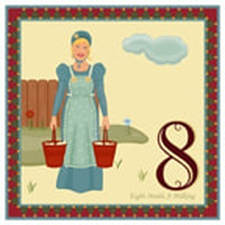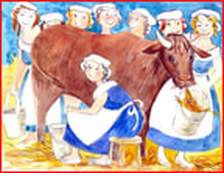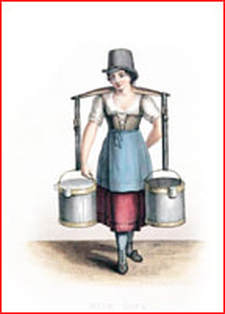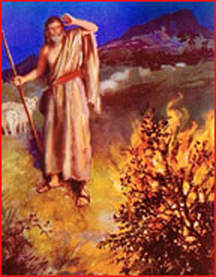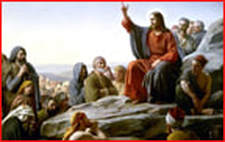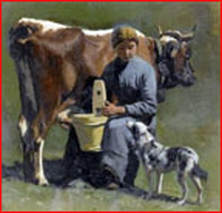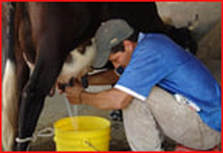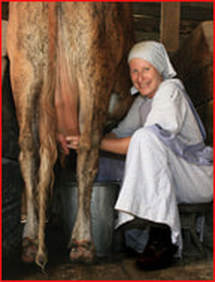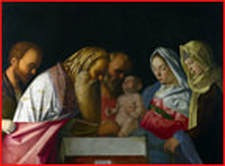| Devotion to Our Lady |
|
- Homepage
-
Daily Thoughts
- 2023 October Daily Thoughts
- Daily Thoughts Lent 2020
- Daily Thoughts for Advent 2019
- Daily Thoughts for October 2019
- Daily Thoughts for September 2019
- Daily Thoughts for August 2019
- Daily Thoughts for July
- Daily Thoughts for June
- Daily Thoughts for Easter 2019
- Daily Thoughts for Lent 2019
- Daily Thoughts for Christmas
- Daily Thoughts Easter 2022
- Sacred Heart
- Holy Ghost
-
Spiritual Life
- Holy Mass Explained
- First Friday Devotions
- First Saturday Devotions
- The Mercy of God
- Vocations
- The Path Everyone Must Walk >
- Gift of Failure
- Halloween or Hell-O-Ween?
- Ignatian Spiritual Exercises >
- Meditation is Soul-Saving
- Spiritual Communion
- Miraculous Medal
- Enrollment in Miraculous Medal
- St. Benedict Medal
- Holy Water
- Advice on Prayer
- Your Daily Mary
-
Prayers
- September Devotions
- Seven Sorrows of Our Lady
-
Novenas
>
- NV-Help of Christians
- NV-Nativity of Our Lady
- NV-Seven Sorrows
- NV- Sorrowful Heart
- NV-Pope St Pius X
- NV-La Salette
- NV-St Michael Archangel
- NV-Immaculate Heart
- NV-Assumption
- NV-Novena for Fathers
- NV-Novena for Your Mother
- NV-St Raphael Archangel
- NV-Souls in Purgatory
- NV-All Saints Day
- NV-Christ the King
- NV-Divine Motherhood
- NV-Guardian Angels
- NV-Rosary
- NV-Mirac Med
- NV- Imm Conc
- NV - Guadalupe
- NV - Nativity of Jesus
- NV-Epiphany
- NV-OL Good Success
- NV-Lourdes
- NV-St Patrick
- NV-St Joseph
- NV-Annunciation
- NV-St Louis de Montfort
- NV-OL Good Counsel
- NV-Last Supper
- NV-Passion
- NV-Pentecost
- NV-Ascension
- NV-Sacred Heart
- NV-Sacred Heart & Perpetual Help
- NV-Corpus Christi
- NV-OL of Perpetual Help
- NV-Queenship BVM
- NV-OL of Mount Carmel
- NV-St Mary Magdalen
- NV- Im Hrt
- August Devotions to IHM
- Immaculate Heart of Mary
- Litany of Dependence
- Prayers to St Mary Magdalen
- Prayers in Times of Sickness Disease & Danger
- Holy Souls in Purgatory
- Meditations on the Litany of Our Lady
- Special Feast Days
- Prayers to Mary (Mon-Sun)
- Litanies to Our Lady >
- Various & Special Needs
- Our Lady of the Rosary
- Our Lady of Mt. Carmel
- Our Lady of Perpetual Help
- Our Lady of Guadalupe
- Other titles of Our Lady
-
Rosary
- Downloads
- Consecration
- Easter Season
-
Holy Week
- Last Seven Words of Jesus >
- Characters of Passion >
- The Last Days of Christ
- Before Palm Sunday
- Palm Sunday
- Monday in Holy Week
- Tuesday in Holy Week
- Wednesday in Holy Week
- Holy Thursday (Last Supper)
- Holy Thursday (Agony & Arrest)
- Night Vigil with Christ
- Good Friday (Pilate & Herod)
- Good Friday (Way of Cross & Crucifixion)
- Saturday in Holy Week
-
Lent
- Ideas for Lent
- Daily Lenten Planner
- Daily Lenten Liturgy
- From Cold to Hot
- Lent with Aquinas
- Lent with Dom Gueranger
- Virtues for Lent
- History of Penance
- How Expensive is Sin?
- Confession of Sins
- Letter to Friends of the Cross
- Sermons for Lent
- Stations of the Cross >
- Lenten Prayers
- 7 Penitential Psalms
- Lenten Psalms SUN
- Lenten Psalms MON
- Lenten Psalms TUE
- Lenten Psalms WED
- Lenten Psalms THU
- Lenten Psalms FRI
- Lenten Psalms SAT
- Lenten Laughs
- Septuagesima
-
Christmas
- Epiphany Explained
- Suggestions for Christmas
- Food For Thought
- Christmas with Aquinas
- Christmas with Dom Gueranger
- Christmas Prayers
- Candles & Candlemas
- Christmas Sermons
- Christmas Prayers SUN
- Christmas Prayers MON
- Christmas Prayers TUE
- Christmas Prayers WED
- Christmas Prayers THU
- Christmas Prayers FRI
- Christmas Prayers SAT
- Twelve Days of Christmas >
-
Advent Journey
- Purgatory
- Christ the King
- Legion of Mary
- Scapular
-
Saints
-
Martyrs for the Faith
>
- Your Daily Martyr >
- All 365 Days of Martyrs
- Cristeros
- St Valentine & Valentine's Day
- Martyrs--Thomas Becket
- Martyrs--John the Apostle
- Holy Machabees
- Age of Martyrdom
- Carmelites of Compiegne
- Martyrs--Peter & Paul
- Martyrs--John the Baptist
- Martyrs--Andrew
- Martyrs--James the Great
- Martyrs--North American
- Martyrs--Seven Holy Sleepers
- Martyrs--Afra
- School of Martyrdom
- Martyrs--Christina
- Desert Saints >
- Saints for Sinners >
- Saints of Mary >
- History of All Saints Day
-
Martyrs for the Faith
>
- Precious Blood
- Synod 2023
-
Catechism
- Catechism Lesson 1
- Catechism Lesson 2
- Catechism Lesson 3
- Catechism Lesson 4
- Catechism Lesson 5
- Catechism Lesson 6
- Catechism Lesson 7
- Catechism Lesson 8
- Catechism Lesson 9
- Catechism Lesson 10
- Catechism Lesson 11
- Catechism Lesson 12
- Catechism Lesson 13
- Catechism Lesson 14
- Catechism Lesson 15
- Catechism Lesson 16
- Catechism Lesson 17
- Catechism Lesson 18
- Catechism Lesson 19
- Catechism Lesson 20
- Catechism Lesson 21
- Catechism Lesson 22
- Bible Study
-
Calendar
- Miracles
- Apparitions
- Shrines
- Prophecies
- Angels Homepage
- Hell
-
Church Crisis
- Conspiracy Theories
- Amazon Synod 2019 >
- Liberalism & Modernism
- Modernism--Encyclical Pascendi
- Modernism & Children
- Modernism--Documents
- The Francis Pages
- Church Enemies on Francis
- Francis Quotes
- Amoris Laetitia Critique
- Danger of Ignorance (Pius X)
- Restore all In Christ (Pius X)
- Catholic Action (Pius X)
- Another TITANIC Disaster?
- The "Errors of Russia"
- CRISIS PRAYERS
- Election Novena 2024
- The Anger Room
- War Zone
- Life of Mary
- Spiritual Gym
- Stupidity
- Coronavirus and Catholicism
- History & Facts
- Books
- Catholic Family
- Children
- Daily Quiz
-
Novena Church & Pope
- Day 01 Church-Pope Novena
- Day 02 Church-Pope Novena
- Day 03 Church-Pope Novena
- Day 04 Church-Pope Novena
- Day 05 Church-Pope Novena
- Day 06 Church-Pope Novena
- Day 07 Church-Pope Novena
- Day 08 Church-Pope Novena
- Day 09 Church-Pope Novena
- Day 10 Church-Pope Novena
- Day 11 Church-Pope Novena
- Day 12 Church-Pope Novena
- Day 13 Church-Pope Novena
- Day 14 Church-Pope Novena
- Day 15 Church-Pope Novena
- Day 16 Church-Pope Novena
- Day 17 Church-Pope Novena
- Day 18 Church-Pope Novena
- Day 19 Church-Pope Novena
- Day 20 Church-Pope Novena
- Day 21 Church-Pope Novena
- Day 22 Church-Pope Novena
- Day 23 Church-Pope Novena
- Day 24 Church-Pope Novena
- Day 25 Church-Pope Novena
- Day 26 Church-Pope Novena
- Day 27 Church-Pope Novena
- Day 28 Church-Pope Novena
- Day 29 Church-Pope Novena
- Day 30 Church-Pope Novena
- Day 31 Church-Pope Novena
- Day 32 Church-Pope Novena
- Day 33 Church-Pope Novena
- Day 34 Church-Pope Novena
- Day 35 Church-Pope Novena
- Day 36 Church-Pope Novena
- Day 37 Church-Pope Novena
- Day 38 Church-Pope Novena
- Day 39 Church-Pope Novena
- Day 40 Church-Pope Novena
- Day 41 Church-Pope Novena
- Day 42 Church-Pope Novena
- Day 43 Church-Pope Novena
- Day 44 Church-Pope Novena
- Day 45 Church-Pope Novena
- Day 46 Church-Pope Novena
- Day 47 Church-Pope Novena
- Day 48 Church-Pope Novena
- Day 49 Church-Pope Novena
- Day 50 Church-Pope Novena
- Day 51 Church-Pope Novena
- Day 52 Church-Pope Novena
- Day 53 Church-Pope Novena
- Day 54 Church-Pope Novena
- Penance Novena
- Daily WeAtheR Forecast
CLICK ON ANY CHRISTMAS LINK BELOW
(most links are available now, the other links will activated shortly)
TWELVE DAYS OF CHRISTMAS
| 12 Day Homepage | 1st Day of Christmas | 2nd Day of Christmas | 3rd Day of Christmas |
| 4th Day of Christmas | 5th Day of Christmas | 6th Day of Christmas | 7th Day of Christmas
| 8th Day of Christmas | 9th Day of Christmas | 10th Day of Christmas | 11th Day of Christmas | 12th Day of Christmas |
PRAYING THE PSALMS THROUGH CHRISTMAS
| Sundays | Mondays | Tuesdays | Wednesdays | Thursdays | Fridays | Saturdays |
SPIRITUAL READING THROUGH CHRISTMAS
| St. Thomas Aquinas on Christmas | Dom Gueranger on Christmas |
(most links are available now, the other links will activated shortly)
TWELVE DAYS OF CHRISTMAS
| 12 Day Homepage | 1st Day of Christmas | 2nd Day of Christmas | 3rd Day of Christmas |
| 4th Day of Christmas | 5th Day of Christmas | 6th Day of Christmas | 7th Day of Christmas
| 8th Day of Christmas | 9th Day of Christmas | 10th Day of Christmas | 11th Day of Christmas | 12th Day of Christmas |
PRAYING THE PSALMS THROUGH CHRISTMAS
| Sundays | Mondays | Tuesdays | Wednesdays | Thursdays | Fridays | Saturdays |
SPIRITUAL READING THROUGH CHRISTMAS
| St. Thomas Aquinas on Christmas | Dom Gueranger on Christmas |
THE CONTROVERSY OVER THE SONG "THE TWELVE DAYS OF CHRISTMAS"
In the last 20 or so years, there has been quite a bit of controversy over the song The Twelve Days of Christmas. Some say it was a cryptic catechism song, used by the persecuted Catholics of England as a means to teach their children some rudimentary teachings of the Faith under the disguise of a seemingly harmless song. Others contest this, by saying that there is no evidence to back-up this claim and say that the alleged points of doctrine to be found hidden in the song, are ... (click here to read more)
"...Eight Maids-A-Milking"
|
THE NUMBER EIGHT
The number EIGHT brings many spiritual things to mind, here are just a few of them: The EIGHT Beatitudes The EIGHT ancient Breviary or Divine Office prayer times: Matins, Lauds, Prime, Terce, Sext, None, Vespers and Compline. The EIGHT days that had to pass between birth and circumcision (Genesis 17:12). The EIGHT souls on Noe’s Ark that were saved from the Great Flood. The EIGHT days of celebration both before and after the time of Christ (called an Octave) The EIGHT days between Our Lord’s two appearances to the Apostles in the Upper Room after the Resurrection. The EIGHT days given to some purification rituals in the Old Testament. The EIGHT points of the compass: N, S, E, W, NE, NW, SE, SW meaning the whole world that had to be converted. SERVANTS AND MAID-SERVANTS We are all servants, called, as our catechism tells us, to “Know, Love and SERVE God.” That requires a foundation of humility. “The disciple is not above the master, nor the servant above his lord” (Matthew 10:24). “And he that will be first among you, shall be your servant” (Matthew 20:27). “He that is the greatest among you shall be your servant” (Matthew 23:11). For “the last be first, and the first last” (Matthew 20:16). UNPROFITABLE SERVANTS AND MAID-SERVANTS We must not let pride destroy our service of the Lord, but realize that whatever good we may manage to do, it is ALL by the grace of God: “I am the vine: you the branches: he that abideth in Me, and I in him, the same beareth much fruit: for without Me you can do nothing” (John 15:5). This is why St. Paul warns us against pride and complacency: “What hast thou that thou hast not received? And if thou hast received, why dost thou glory, as if thou hadst not received it?” (1 Corinthians 4:7). If all the good we do is done with the grace of God prompting us, assisting us, and helping us persevere until the good has been accomplished, then we should take to heart His words when He says: “When you shall have done all these things that are commanded you, say: ‘We are unprofitable servants; we have done that which we ought to do!’“(Luke 17:10). SERVANTS AND TALENTS The maids cannot take credit for the milk―for God, not they, made the cow. Nor can they take credit for the pail or bucket―someone other than them made the pails or buckets. The cow and the pail have been given to them to use correctly, in order to draw, collect and store the milk from the cows. This recalls the Parable of the Talents, where “a man going into a far country, called his servants, and delivered to them his goods; and to one he gave five talents, and to another two, and to another one, to every one according to his proper ability: and immediately he took his journey. “And he that had received the five talents, went his way, and traded with the same, and gained other five. And in like manner he that had received the two, gained other two. But he that had received the one, going his way digged into the earth, and hid his lord’ s money. But after a long time the lord of those servants came, and reckoned with them. And he that had received the five talents coming, brought other five talents, saying: ‘Lord, thou didst deliver to me five talents, behold I have gained other five over and above.’ His lord said to him: ‘Well done, good and faithful servant, because thou hast been faithful over a few things, I will place thee over many things: enter thou into the joy of thy lord.’ And he also that had received the two talents came and said: ‘Lord, thou deliveredst two talents to me: behold I have gained other two.’ His lord said to him: ‘Well done, good and faithful servant: because thou hast been faithful over a few things, I will place thee over many things: enter thou into the joy of thy lord.’ But he that had received the one talent, came and said: ‘Lord, I know that thou art a hard man; thou reapest where thou hast not sown, and gatherest where thou hast not strewed. And being afraid I went and hid thy talent in the earth: behold here thou hast that which is thine.’ “And his lord answering, said to him: ‘Wicked and slothful servant, thou knewest that I reap where I sow not, and gather where I have not strewed: Thou oughtest therefore to have committed my money to the bankers, and at my coming I should have received my own with usury. Take ye away therefore the talent from him, and give it to him that hath ten talents. For to every one that hath shall be given, and he shall abound: but from him that hath not, that also which he seemeth to have shall be taken away. And the unprofitable servant cast ye out into the exterior darkness. There shall be weeping and gnashing of teeth’” (Matthew 25:14-30). “Who, thinkest thou, is a faithful and wise servant, whom his lord hath appointed over his family, to give them meat in season. Blessed is that servant, whom when his lord shall come he shall find so doing. Amen I say to you, he shall place him over all his goods. But if that evil servant shall say in his heart: ‘My lord is long a coming!’: and shall begin to strike his fellow servants, and shall eat and drink with drunkards: The lord of that servant shall come in a day that he hopeth not, and at an hour that he knoweth not: and shall separate him, and appoint his portion with the hypocrites. There shall be weeping and gnashing of teeth” (Matthew 24:45-50). THE SYMBOLISM OF MILK For the Israelites, “the land of milk and honey” was the “Promised Land” to which God had promised to lead them through Moses. The “Promised Land” is in turn a symbol of Heaven, to which God has promised to lead us through Jesus Christ. We see God Himself speak symbolically and favorably of milk as something pleasant to look forward to, when He spoke to Moses from the burning bush: “I am the God of thy father, the God of Abraham, the God of Isaac, and the God of Jacob ... I have seen the affliction of my people in Egypt, and I have heard their cry because of the rigor of them that are over the works: And knowing their sorrow, I am come down to deliver them out of the hands of the Egyptians, and to bring them out of that land into a good and spacious land, into a land that floweth with milk and honey.” (Exodus 3:6-8). Yet the symbolism of milk is also used in negative way by Job, when he complains to God about the afflictions that God has put him through, saying: “Hast thou not milked me as milk!” (Job 10:10), which can somewhat be linked to Proverbs 30:33, which in a way explains Job’s comment: “He that strongly squeezeth the papa to bring out milk, straineth out butter: and he that violently bloweth his nose, bringeth out blood: and he that provoketh wrath bringeth forth strife.” While in prison awaiting martyrdom, St. Perpetua recounts a vision where she saw a tall and venerable old shepherd milking a sheep. “He looked at me and said, ‘Welcome, my daughter.’ And he gave me of the milk. I received it and partook of it. All those standing around cried ‘Amen’. At the sound of the voice I awoke, tasting an indescribable sweetness in my mouth.” Many see this as a symbol of the Eucharistic joy found in Heaven. THE EIGHT BEATITUDES Milk is a symbol of heavenly joys and the Eight Maids represent the Eight Beatitudes that lead us to that joy. Our Lord Jesus Christ gave us the Beatitudes from His own lips. Through them Jesus encourages us to be: “...poor in spirit ... meek ... to mourn ... to hunger and thirst after justice ... to be merciful ...to be clean of heart ... to be peacemakers ... to suffer persecution for justice’s sake.” Here is what Fr. Garrigou-Lagrange, O.P, has to say on them: “The end or result of doing these things is indicated in each of the eight beatitudes. Under different names, it is eternal happiness, whose prelude the just may enjoy even here on earth; it is the kingdom of heaven, the promised land, perfect consolation, the full satisfaction of all our holy and legitimate desires, supreme mercy, the sight of God our Father. The means are quite the contrary of those suggested by the maxims of worldly wisdom, which proposes an entirely different end. “St. Augustine and St. Thomas admirably explain the order of these eight beatitudes. The first three beatitudes tell the happiness that is found in the flight from sin and deliverance from it, in poverty accepted for love of God, in meekness, and in the tears of contrition. The two following beatitudes are those of a Christian’s active life: they correspond to the thirst for justice and to mercy exercised toward one’s neighbor. Then come those of the contemplation of the mysteries of God: the purity of heart which prepares the soul to see God, and the peace which springs from true wisdom. Finally, the last and most perfect of the beatitudes unites all the preceding ones in the very midst of persecution endured for justice’ sake. These are the final trials, the condition of sanctity” (The Three Ages of the Interior Life, Vol. 1, Part 1, ch. 8). THE TOIL AND TROUBLE OF MILKING Today, most cows in the world are milked by machine, but in some places, and in bygone years, it was all done by human labor. And “labor” is the word! Let us not have romantic ideas about happily milking cows, while joyously singing sweet songs at the top of our lungs! Milking cows is a sacrifice and can be a considerable pain. Here are a few quotes from long-experienced dairy farmers: “Typically dairy cows involve a lot more responsibility and hard work than caring for beef cows, because you have the added duty of regular milking ... Feeding your cows is the first and most important part of taking care of dairy cows. You have to feed them to help them produce milk. Without feed, don’t expect your dairy cows to be producing much milk. Just like milking, all this requires a certain daily prolonged effort. Keep the stalls where they live or go to be milked clean with fresh bedding. This will need to be done every day. Replace dirty bedding (in the form of straw or sawdust) that has been soiled from manure with clean bedding. Dairy cows need to be milked twice a day, once every 12 hours, approximately. Milking cows is an activity that can last for several hours for the larger herds, two or even three times a day, even although milking one cow would not take more than about 10 to 15 minutes per session for an experienced farm-hand. Nevertheless, the position you have to sit or kneel in can be uncomfortable; the location will often smell of manure and it is not uncommon for the cow to discharge her manure while you are milking! According to the season of the year, it can be pleasant, or stiflingly hot and humid, or bitterly cold. The cow could even shift and, given her great weight, cause injury very easily to limbs that don’t move out of the way quickly enough.” The cow is a symbol of ourselves. The milk is a symbol of virtue, the manure is a symbol of sin. The maids can be seen to be symbols of angels of God, or the clergy of the Church, that are trying to draw virtue out of the herd entrusted to them. The milking goes on among the smell of manure, just as our spiritual growth continues, despite the sins that we commit daily: “a just man shall fall seven times and shall rise again” (Proverbs 24:16) ... “If we say that we have no sin, we deceive ourselves, and the truth is not in us...If we say that we have not sinned, then we make Him to be a liar, and His word is not in us” (1 John 1:8-10). Let us take the Beatitudes to heart in order to find that “land of milk and honey” that the Bible promises: “I am come down to deliver them out of the hands of the Egyptians, and to bring them out of that land into a good and spacious land, into a land that floweth with milk and honey.” EIGHT DAYS FROM BIRTH TO CIRCUMCISION Today, on the eight day of Christmas, we celebrate the feast of the Circumcision of the Infant Jesus. This was a custom that was commanded by God Himself: “An infant of eight days old shall be circumcised among you, every man child in your generations” (Genesis 17:12). EIGHT DAYS OF CELEBRATION (OCTAVE) The word “Octave” is based on the Latin word for the number eight. An octagonal is a shape that has eight sides. An octogenarian is someone who is more than eighty years old, but not yet ninety. In the Old Testament, under command from God, certain feasts were celebrated for eight days (an octave). “And they kept the dedication of the altar eight days, and they offered holocausts with joy, and sacrifices of salvation, and of praise” (1 Machabees 4:56). “And Judas Machabees, and his brethren, and all the church of Israel decreed, that the day of the dedication of the altar should be kept in its season from year to year for eight days, from the five and twentieth day of the month of Casleu, with joy and gladness” (1 Machabees 4:59). “And after eight days again His disciples were within, and Thomas with them. Jesus cometh, the doors being shut, and stood in the midst, and said: ‘Peace be to you!’” (John 20:26). The Catholic Church used to have many feasts that would be celebrated for the entire Octaves. The ones that remain today are the Octave of Christmas, Octave of Easter, and the Octave of Pentecost. EIGHT DAYS OF PURIFICATION Eight days was sometimes the length of time allotted to a time of purification: “And they began to cleanse on the first day of the first month, and ... they purified the temple in eight days” (2 Paralipomenon 29:17). EIGHT SOULS SURVIVED THE DELUGE IN THE ARK “God seeing that the wickedness of men was great on the earth, and that all the thought of their heart was bent upon evil at all times, said: ‘I will destroy man, whom I have created, from the face of the earth, from man even to beasts, from the creeping thing even to the fowls of the air, for it repenteth me that I have made them!’ But Noe found grace before the Lord. And when God had seen that the earth was corrupted (for all flesh had corrupted its way upon the earth), He said to Noe: ‘The end of all flesh is come before Me, the earth is filled with iniquity through them, and I will destroy them with the earth! Make thee an ark of timber planks: thou shalt make little rooms in the ark. Behold I will bring the waters of a great flood upon the earth, to destroy all flesh, wherein is the breath of life, under heaven. All things that are in the earth shall be consumed. And I will establish My covenant with thee, and thou shalt enter into the ark, thou and thy sons, and thy wife, and the wives of thy sons with thee!’” (Genesis 6:5-18) “Which had been some time incredulous, when they waited for the patience of God in the days of Noe, when the ark was a building: wherein a few, that is, eight souls, were saved by water” (1 Peter 3:20). “For as in the days before the flood, they were eating and drinking, marrying and giving in marriage, even till that day in which Noe entered into the ark” (Matthew 24:38). |
Web Hosting by Just Host

